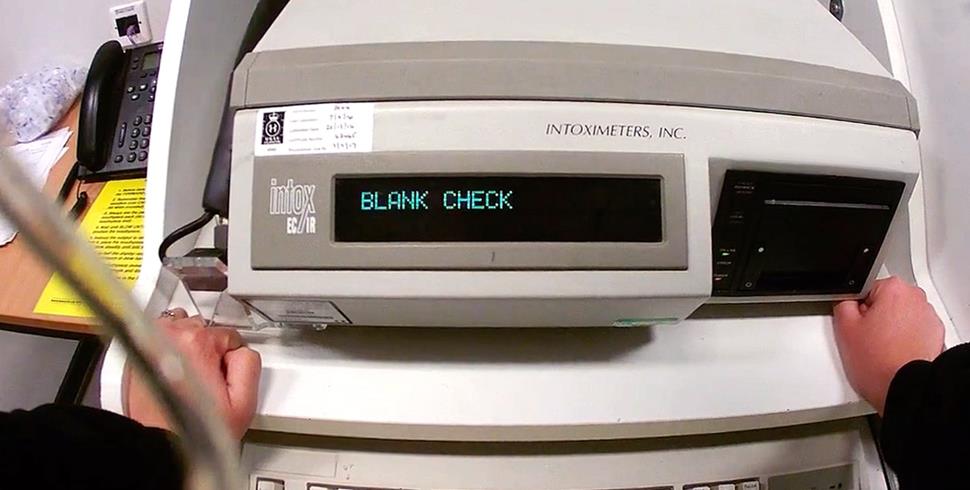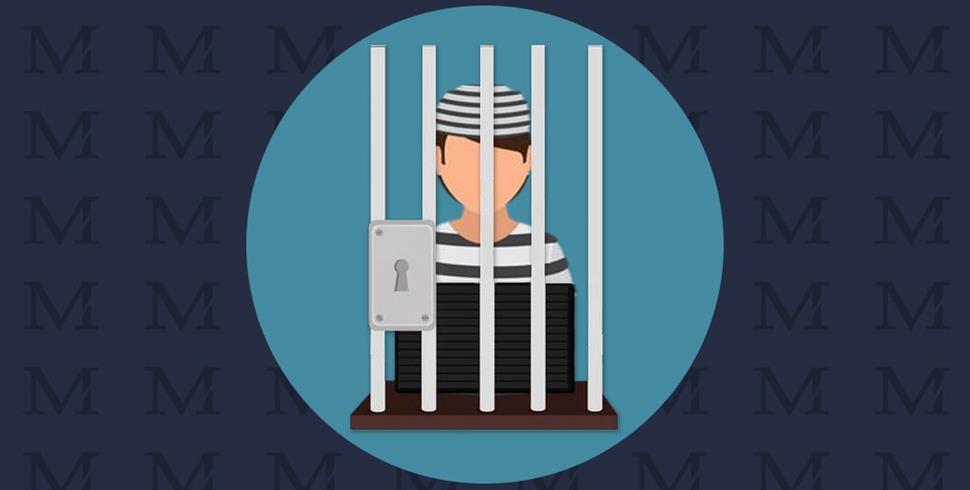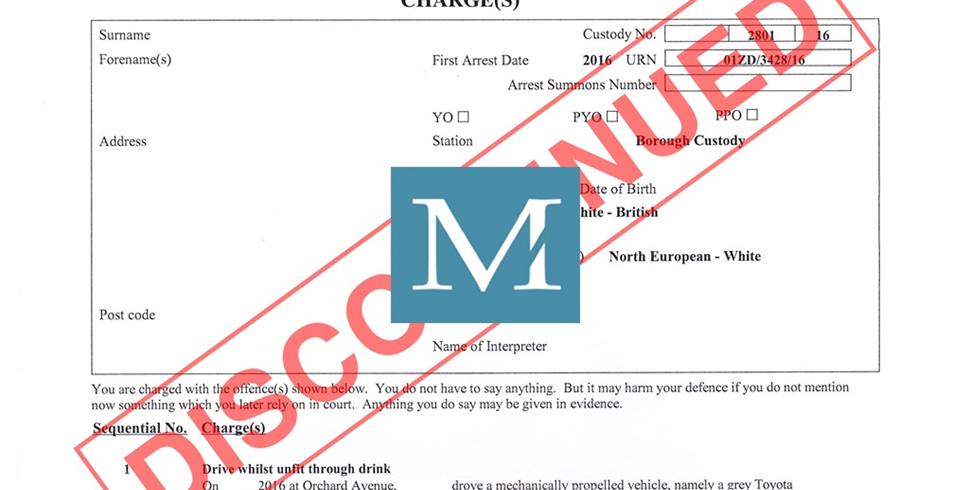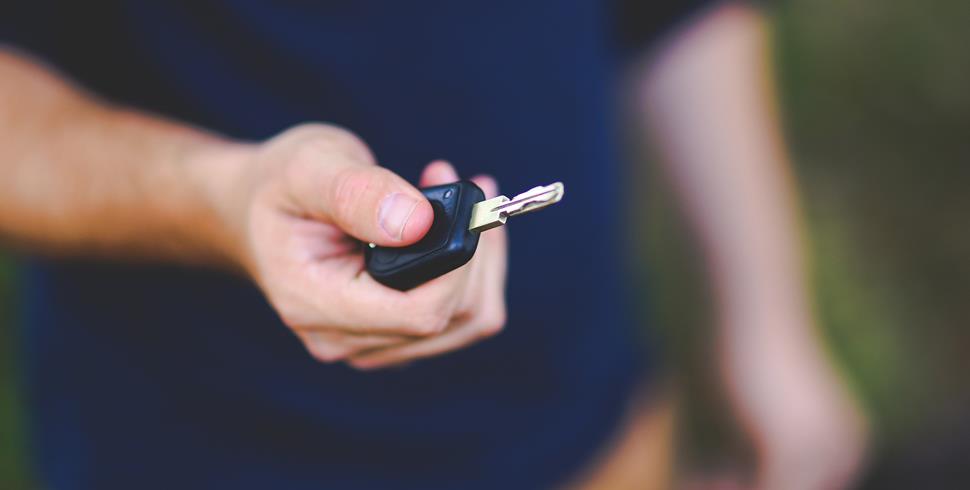
What are the best defences in drink driving cases?
Breath / Blood / Urine
Conor Johnstone is a solicitor who specialises in defending motoring offences, in particular, drink and drug driving allegations. He regularly attends court to represent clients and has first-hand knowledge of most courts across England and Wales. Over the years, Conor has built a formidable reputation for his extensive knowledge of technical defences and statutory loopholes. It's fair to say he's every prosecutors worst nightmare! Conor and his legal team continue to win an impressive number of motoring cases.
In 2021, we won a record number of drink driving cases. Many of our clients have defences without knowing. Even if we can't win your case, we may be able to negotiate lesser charges to reduce the sentence. Penalty points are much better than a driving ban!

When choosing a solicitor, there are few things to check before making a decision. The right legal team is absolutely critical to the outcome of your case. First of all, don't be afraid to ask if the person handling your case or giving you legal advice is actually a solicitor. There are a lot of paralegals, case-workers, assistants and wannabe-lawyers giving legal advice over the phone. Make sure the person you're speaking to has the necessary experience to offer the right advice. If you are speaking to a solicitor, it's absolutely essential that the solicitor goes to court. That might sound silly - a solicitor who doesn't go to court - but it's actually quite common. A solicitor who spends all their time in an office may struggle to understand the technical, procedural and evidential ways that a drink driving case is defended. What happens in court is very different to what you read in a law book!
Finally, make sure the solicitor you instruct is a specialist. Conor regularly wins cases on technical points of law and procedure. Defences might relate to the operation of an evidential breath testing device or alcohol elimination rates. A solicitor who deals with all areas of law may overlook the obvious defences.
To summarise;
- Make sure you're speaking to a solicitor
- Does the solicitor represent clients in court?
- Do they specialise in drink driving cases?
Defending a drink driving allegation
If you've been charged with drink driving, it's probably because you provided a breath, blood or urine reading above the legal limit. Just because you've been charged does not mean that you are guilty of the offence - even if you think you are. I'm often called by people who find themselves in this situation. They've been charged with drink driving and the court hearing is around the corner. They often tell me (and assume that I agree) that they have to plead guilty - "there's no other choice, is there?".
Not true. Every defendant has the right to plead not guilty to a drink driving charge. Please also remember that before the first court hearing I can obtain the initial evidence against you (known as the IDPC). If I can find any fault with the evidence against you, I may be able to persuade the police/CPS to drop the case before or during the first court hearing. Once we have the IDPC, we can then make clearer decisions regarding your plea and, of course, any available defences.
How we won our clients case at the first hearing
The CPS had made a huge mistake and didn't tell anyone.
Drink Driving Defences
Over the course of 2024, M.A.J Law has continued to successfully defend countless drink driving cases, breaking all our previous records. We are continually impressed by the efforts our 20-strong team and the results we achieve. We have listed below the most common drink driving defences used by M.A.J Law throughout 2023 and 2024 so far. Remember, all our advice is completely free of charge. If you'd like to discuss your case in confidence, please call us on 01514228020.
-
CPS Disclosure
Drink driving cases are sometimes seen as 'low-priority' nuisance cases by the CPS. Once a not-guilty plea is entered with the court, the CPS has 28 days (under the court's standard directions) to serve any initial disclosure, including witness statements, procedural forms, CCTV etc... Within this time they must also serve a Schedule of Unused Material (listing any items/material the CPS possess but do not want us to see).
The CPS regularly fail to provide the correct disclosure within the required timeframe. Over-worked prosecutors and under-qualified assistants are the number one reason for CPS mishaps. Whatever the excuse, if the paperwork is not served in time, we can apply to exclude it. No evidence. No conviction.
You can read more about prosecution failures here. -
Police Procedure
The correctness of the testing procedure is hughely important in any drink driving case. The police must complete a 20 page booklet known as the MGDDA document before obtaining the breath sample. This booklet contains various questions about the procedure and important legal requirements. If the police cut-corners or make silly mistakes (as they often do), they are not entitled to use the breath, blood or urine reading against you. This is one of the most common ways that drink driving cases will fail.
You can view a complete copy of the MGDD documents here. -
Inaccurate test results (breath, blood and urine samples)
Breath. Evidential breath testing macines are around 15 - 20 years old. They must be maintained correctly and serviced regularly. How do you know the breath machine was working correctly and have you seen calibration records? Remember that you can always ask the CPS to supply data relating to this device. Another reason why you should ask for additional evidence is because it slows the process and creates delays. Thousands of criminal cases are dropped every year due to administration problems and poor policing.
What about medication? We have the option to instruct an expert toxicologist to comment on the interaction between medication and breath alcohol levels.
Blood & Urine. These kind of cases are much more difficult to prove due to outdated methods of serving toxicology reports. Have you been given the SFR1 and have you asked for the SFR2? If you're unsure what these documents are, please get in touch and we'd be pleased to explain. -
Post Driving Consumption (The Hip Flask Defence)
You may have a complete defence if you consumed alcohol after driving but before the test. Section 15(3) of the Road Traffic Offenders Act 1988 displaces a presumption that you were over the legal limit at the time of driving if you can prove, on a balance of probabilities, that you consumed alcohol after driving. Plainly you should not be convicted of drink driving if you were not over the limit at the time of driving! This type of argument usually requires expert evidence from a toxicologist who can conduct a Blood Alcohol Concentration calculation. Try not to worry too much about this; we can facilitate a full report. You can read more about Post Driving Consumption here. -
Cracknell v Willis
What if you dispute the level of alcohol in your breath but you cannot explain the result? Cracknell v Willis is a defence of 'man versus machine'. A defendant can claim that the alcohol he consumed could not have accounted for the reading provided. Take the following example: Mr Price drinks two pints of beer at a local pub with two friends. On his way home he's stopped and breathalysed. He fails. At the police station his breath reading is 85ug. It doesn't take an expert to workout that two pints of beer couldn't account for a breath reading of 85ug. Mr Price has no explanation for the result and the police maintain that it's an accurate reading. In court, Mr Price can tell the court what he drank. His friends, too, can give evidence to support his account. If the magistrates believe Mr Price they can acquit him - even if the machine seems to have worked reliably. -
Consent
By law, a person must agree to provide a specimen for alcohol analysis. The police must make a legal requirement for you to provide a sample of breath, blood or urine. Within that legal requirement is a request for your consent. If you do not give your consent, or if you're not asked, the results may not be admissible in evidence against you. I have copied below the legal requirement to provide a specimen of breath. This is taken from the MGDDA document. Do you remember the officer reading this out?I require you to provide two specimens of breath by means of an approved device. The specimen with the lower proportion of alcohol will be used as evidence and the higher will be disregarded. I warn you that a failure to provide either of these specimens will render you liable to prosecution. Do you agree to provide two specimens of breath for analysis?
-
The 'Jubb v DPP' argument - Multiple Samples
By law, a police officer can only require you to provide a specimen on one occasion. He cannot give multiple requirements for you to provide a specimen. If, for example, you are required by a police officer to provide two specimens of breath and you comply, you cannot then be asked to provide more. If appropriate, the officer may invite you to provide additional specimens, but he cannot require you to. This is a legal distinction that can be difficult to understand. If you think this scenario might apply in your case, please contact our team of solicitors for free advice.
-
Section 16(4) - The Breath Test Printout
Did you receive a printout from the breath test machine? This printout is treated as a 'certificate of analysis' for the purposes of Section 16(4) of the Road Traffic Act 1988. This means that its purpose is to prove the proportion of alcohol in your breath, as well as the automatic calibration checks conducted by the machine. A certificate of analysis must be served on the defence not less than seven days prior to a trial. If it is not served it may not be admissible. We recently won a case at Preston Magistrates' Court for a client who was three times the legal limit. Five police officers attended the trial to give evidence. The prosecutor was forced to drop the case once it became apparent the printout hadn't been served on the defence!
A similar argument applies to cases involving blood and urine. But rather than a breath test printout the police need to serve an SFR1 (Streamlined Forensic Report). The purpose of the SFR1 is to prove the proportion of alcohol or drugs in a sample. The CPS often misunderstand the SFR protocol and fail to serve the correct evidence. You can read more about this process here. -
Witness attendance
Remember that the CPS will need to call witnesses to court in order to prove its case. In most motoring cases, witnesses are going to be police officers. It still amazes me how often the CPS fail to bring the right witnesses to court. Sick leave, annual leave, training days - these are all reasons why the officers might fail to turn up. No witnesses, no case!
Please also remember that the drink driving disqualification cannot increase, even if you're convicted after a trial. The magistrates must disqualify you inline with the drink driving sentencing guidelines. They are unable to increase the driving disqualification at a later stage. This means there is very little risk in challenging a drink driving case.
Drink Driving Ban Calculator - work out the length of banStep 1 of 3Have you been convicted of drink driving within the last 10 years?
Step 2 of 3What type of sample did you provide?
Step 3 of 3What was the level reading for ?
-
Driver Identification & circumstantial evidence
The final defence relates to 'driver identification' - Can the police prove that you drove the vehicle? Obviously if you were pulled over by the police then it's more difficult to challenge the case on this basis. But what happens if you were involved in a collision and the police only arrived afterwards? Or perhaps you were stationary when the police turned up. You do not have to admit to being the vehicle driver just because the police ask you. I always ask the police to prove that my client was driving the vehicle. It's important to understand the difference between circumstantial evidence and direct evidence. Circumstantial evidence is where the facts 'suggest' that you were driving (i.e. you're insured to drive the vehicle or the vehicle belongs to you). Direct evidence is where the police witness you directly driving the vehicle. In the Magistrates' Court, circumstantial evidence may not be sufficient to persuade the magistrates that you were driving. Even if the officer saw you driving, he will need to attend court to confirm that fact. Many of our cases are won because the police fail to turn up on court dates.
Why is it important to defend a drink driving case?
You will know by now that drink driving carries a mandatory driving disqualification. This means that if you are convicted, the court must disqualify you. The minimum disqualification is 12 months. The higher the breath reading the longer the disqualification. A motorist may also receive community service and, in more serious cases, a prison sentence. The court's sentence depends upon many factors including;
- The defendant's previous record
- Aggravating and mitigating factors
- Injuries caused to others
- Evidence of bad driving or serious impairment
- The breath, blood or urine result
- Whether the defendant shows remorse
If you provided a breath reading above 87.5 (equivalent to 200mg in blood) you are automatically considered a 'High Risk Offender' (HROs). You can read more above HRO's on our High Risk Offenders page.
We have produced a details booklet on the Magistrates' Court Sentencing Guidelines. This will give you much more information about the type of penalties imposed by the courts.
Going to Court for drink driving
For most, court is an unpleasant experience. No doubt you will be worried about the prospect of attending court and having to speak in front of barrister, solicitors and judges. It's important to seek the correct legal advice in relation to your options, the sentence, and any defences that might apply. Solicitors come in all shapes and sizes. Most have never defended a drink driving case and wouldn't know where to start! Some solicitors are cheap, others are more expensive.
We've prepared a comprehensive guide to help you with your first court hearing. You access this here.
If you would like to speak with someone about your options, please get in touch. All our initial advice is completely free of charge. We are able to tell you within minutes whether you have a defence to the allegation. We can also outline our costs so they're clear from the outset.
Drink Driving Solicitor Fees
Defending a drink driving case may not be as expensive as you might think. To make life easier, we separate our fees into stages, meaning you only pay for the work that's needed - rather than paying for the full case upfront. Many of our cases are won on or even before the first court hearing.
To ask about our fees, please call us on 01514228020.
Next Steps
If you want more information about how to defend a drink driving case, you can review our Case Studies. Alternatively, please get in touch for free legal advice.
NEXT STEPS: Free Legal Advice from M.A.J Law
M.A.J Law are a specialist team driving defence solicitors. We believe that every motorists has the right to independent legal advice. For that reason, we offer every motorist free specialist initial advice no matter what your circumstances.







